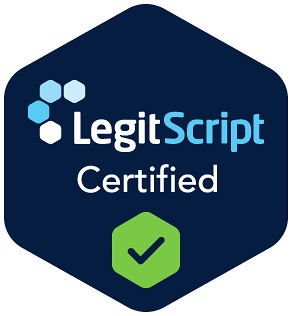Aftercare Programs for Substance Abuse
What Are Aftercare Programs for Substance Abuse?
Addiction recovery doesn’t just stop once a person completes rehab. Addiction recovery lasts a lifetime. Individuals that want to maintain lifelong sobriety should look into aftercare programs for substance abuse once they complete addiction treatment.
What Are Aftercare Programs for Substance Abuse?
Aftercare programs for substance abuse are addiction therapy programs, services, and support groups to keep those in recovery from relapsing. The aftercare treatment programs that individuals should partake in depend on their individual needs.
Recovery Is Possible
Take Back Your Life Today
Hear From Past Client's
“I came here a broken man and was greeted with open arms. If you are struggling with addiction the folks down at Grace Land got you covered. Y'all will always hold a special place in my heart.”
- Jon A.
“Great staff!!! They definitely go above and beyond here! Thanks for helping me save my life!! Y’all are awesome!”
- Amber N.
“Grace Land Recovery goes above and beyond in providing therapeutic methods to attain and maintain sobriety. The staff is personally invested in helping their clients turn their lives around.”
- Jack R.
“What an amazing program and caring staff Grace Land Recovery has! I highly recommend this program to those seeking help in Memphis. Phil is the man!”
- Troy R.
“Amazing staff. Thank you for everything.”
- Ashley M.
Types of Aftercare Programs for Substance Abuse
There are a wide variety of aftercare programs for substance abuse. The different types of aftercare treatment programs vary based on the service that they provide individuals in addiction recovery.
Ongoing Outpatient Counseling
Ongoing outpatient counseling is a primary form of rehab aftercare for individuals that are in recovery. This form of regular counseling or addiction therapy occurs after a person is sober and has already completed addiction treatment. It’s because these addiction counseling or therapy sessions continue after rehab is complete that they’re considered ongoing.
Ongoing addiction counseling or therapy is considered outpatient because it allows patients to live a normal life in society and doesn’t require them to live in rehab facilities while receiving care. The purpose of ongoing outpatient counseling is to make sure that individuals in recovery are always proactive when it comes to upkeeping their coping skills, managing their triggers, and maintaining sobriety.
Ongoing outpatient counseling is the least restrictive form of aftercare programs for substance abuse. Therefore, individuals that use this form of aftercare treatment are usually in a good place in their recovery.
Ongoing outpatient counseling usually occurs for a couple of hours a day, a couple of days a week. Individuals that attend ongoing outpatient counseling can lower the number of hours or counseling sessions that they receive if they feel that they are making progress in their recovery.
12 Step Programs
12 step programs are membership-run support groups for individuals that are in recovery from specific substance addictions. Membership to 12 step programs is free, though. Therefore, all individuals in addiction recovery can receive this type of aftercare treatment.
12 step programs make individuals follow 12 sequential set guidelines, or “steps,” to help them maintain sobriety. 12 step programs are spiritually focused. Therefore, many of the 12 steps focus on helping individuals through faith in a higher power. This helps those in recovery release their stresses, concerns, and triggers when it comes to addiction. In doing so, 12 step programs give individuals in addiction recovery the hope and confidence that they can maintain their sobriety long-term.
While 12 step programs help individuals relieve their stresses, concerns, and triggers through spirituality, they also teach people in addiction recovery how to be accountable for their actions. 12 step programs even show individuals in addiction recovery the value of making amends with people that have wronged them in the past.
By forcing individuals in addiction recovery to forgive others and make amends with people that have wronged them in the past, 12 step aftercare programs for substance abuse help relieve people of toxic hate and resentment. This frees 12 step program members up to be their best, sober selves.
It’s best for an individual to go through and complete the 12 steps within 12 step programs with the assistance of a sponsor. Once individuals complete all the 12 steps within 12 step programs, people in addiction recovery are supposed to revisit and complete various steps again on an as-needed basis.
Types of 12 Step Groups
12 step programs are support groups. There are different types of 12 step support groups for individuals that are in recovery from substance addiction.
Typically 12 step support groups focus on different addictions respectively. For example, a well-known 12 step support group for people that suffer from alcohol addictions is Alcoholics Anonymous (AA). Other well-known addiction support groups include Narcotics Anonymous (NA), SMART Recovery, Women in Sobriety, and Celebrate Sobriety.
Sober Living Homes
Sober living homes are another one of the primary types of aftercare programs for substance abuse. These homes are apartment-style living quarters where all of the residents are other individuals in addiction recovery.
Sober living homes are different from rehab facilities. It’s because sober living homes are only for people that have already completed rehab. Therefore, they allow residents to function normally in society while not at home. In fact, sober living home residents are encouraged to further their education and/or get a job.
This kind of rehab aftercare is for people that are worried about going back into the real world after addiction treatment. Therefore, sober living homes are the bridge between rehab and normal life in society.
Additionally, sober living homes don’t allow any substances on their campuses. This helps sober living home residents get used to maintaining sobriety post-treatment. Sober living homes also often provide their residents with extended addiction therapy opportunities. This only helps make sober living home residents more prepared to maintain sobriety once they’re on their own in the real world.
How Else Do Sober Living Homes Help Those in Recovery?
The structure that sober living homes force onto their residents even helps individuals in addiction recovery build boundaries for themselves. These boundaries will help sober living home residents healthily function as sober individuals in the real world.
Sober living homes provide individuals that are new to addiction recovery with the time to rebuild the structure of their lives. Sober living homes also provide their residents with the opportunity to further build their support groups and resources.
Rehab Alumni Programs and Events
Attending rehab alumni programs and events is a fun way to keep up with support group members that were made while in addiction treatment. Also, keeping up with other people in addiction recovery helps alumni and event attendees not feel alone in their struggles.
Just this feeling of community rather than loneliness can help keep people from relapsing. Rehab alumni programs and events are typically social parties or activities.
Planning Rehab Aftercare Treatment
To make aftercare programs for substance abuse more effective, individuals should make plans to attend them prior to leaving rehab. Addiction treatment counselors, therapists, or case managers can help people set up rehab aftercare plans.
To come up with an effective rehab aftercare plan, consider individual needs. For example, individuals that are new to recovery and are worried about re-entering the real world may put staying in a sober living home as part of their aftercare plan.
The length of a person’s aftercare plan will also depend on individual needs. Most addiction treatment specialists advise that people plan to receive regular rehab aftercare treatment for at least one year. Individuals can always modify their aftercare plans at any given time based on their needs.
The Value of a Sponsor
It’s wise to get a sponsor when making aftercare plans, going through 12 step support groups, or simply going through aftercare counseling. Sponsors are individuals that are further along in their addiction recovery. Therefore sponsors can advise people that are new to aftercare programs for substance abuse on what they need to do to capitalize on their aftercare treatment.
Receive Aftercare Treatment Services At Grace Land for Recovery
Grace Land Recovery is a dual diagnosis treatment center that specializes in co-occurring disorder treatment and addiction treatment. At Grace Land Recovery, we understand that addiction recovery is a lifelong journey. As a result, we know that aftercare programs for substance abuse are necessary.
To increase the chances of successful aftercare programs for substance abuse, we offer a variety of specialized drug addiction treatment programs. That way, our patients start out rehab aftercare being stable in their sobriety. Here at Grace Land Recovery, we also offer numerous addiction therapies. Prior to attending aftercare treatment, one of our case managers will even help patients come up with an effective aftercare treatment plan.
That fact on top of the fact that we offer relapse prevention to all of our patients goes to show how dedicated we are to the success of after programs for substance abuse. To learn more about our rehab aftercare treatment services, contact us today!
Recovery Is Possible
Take Back Your Life Today
Hear From Past Client's
“I came here a broken man and was greeted with open arms. If you are struggling with addiction the folks down at Grace Land got you covered. Y'all will always hold a special place in my heart.”
- Jon A.
“Great staff!!! They definitely go above and beyond here! Thanks for helping me save my life!! Y’all are awesome!”
- Amber N.
“Grace Land Recovery goes above and beyond in providing therapeutic methods to attain and maintain sobriety. The staff is personally invested in helping their clients turn their lives around.”
- Jack R.
“What an amazing program and caring staff Grace Land Recovery has! I highly recommend this program to those seeking help in Memphis. Phil is the man!”
- Troy R.
“Amazing staff. Thank you for everything.”
- Ashley M.
What Makes Aftercare Programs for Substance Abuse Successful?
According to the Substance Abuse and Mental Health Services Administration (SAMHSA), there are four main things that make aftercare programs for substance abuse successful.
Health
Health services during rehab aftercare treatment provide individuals with what they need to overcome lingering addiction symptoms. Examples of health-related aftercare treatment services include substance use and mental health disorder assessments.
Other health-related aftercare treatment services include alcohol, drugs, and infectious disease tests. Medication that can help treat a person’s addiction or mental health, along with medical, mental health, and substance use education, will only improve the health and well-being of people receiving aftercare programs for substance abuse.
Home
Home services for aftercare programs for substance abuse ensure that aftercare patients have a stable and supportive place to live. They are also sometimes responsible for transporting people to appointments.
Purpose
Successful aftercare programs for substance abuse provide individuals in addiction recovery with purpose. In this way, it motivates people to maintain sobriety.
Community
Aftercare programs for substance abuse help people in addiction recovery build community. It does this by giving them the opportunity to build new social networks. Aftercare programs can also build community by improving their current relationships, engaging in healthy relationships, and finding community involvement.
More Aftercare Services
On top of the services that make aftercare programs for substance abuse successful, many high-quality aftercare programs will provide their patients with services that cater to the following needs:
- Legal involvement
- Vocation
- Education
- Medical status
- Mental health
- Relationships
- Child care
- Housing and transportation
- Finances
Find Your Recovery




